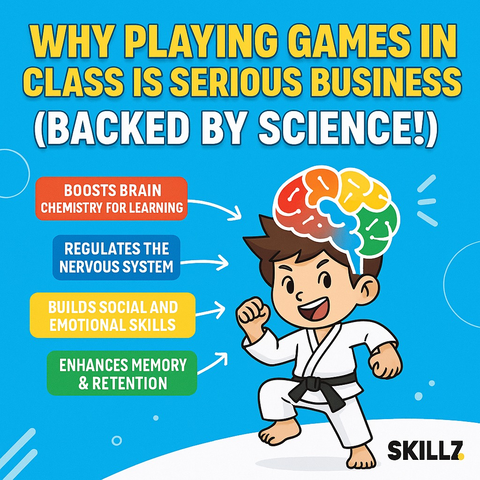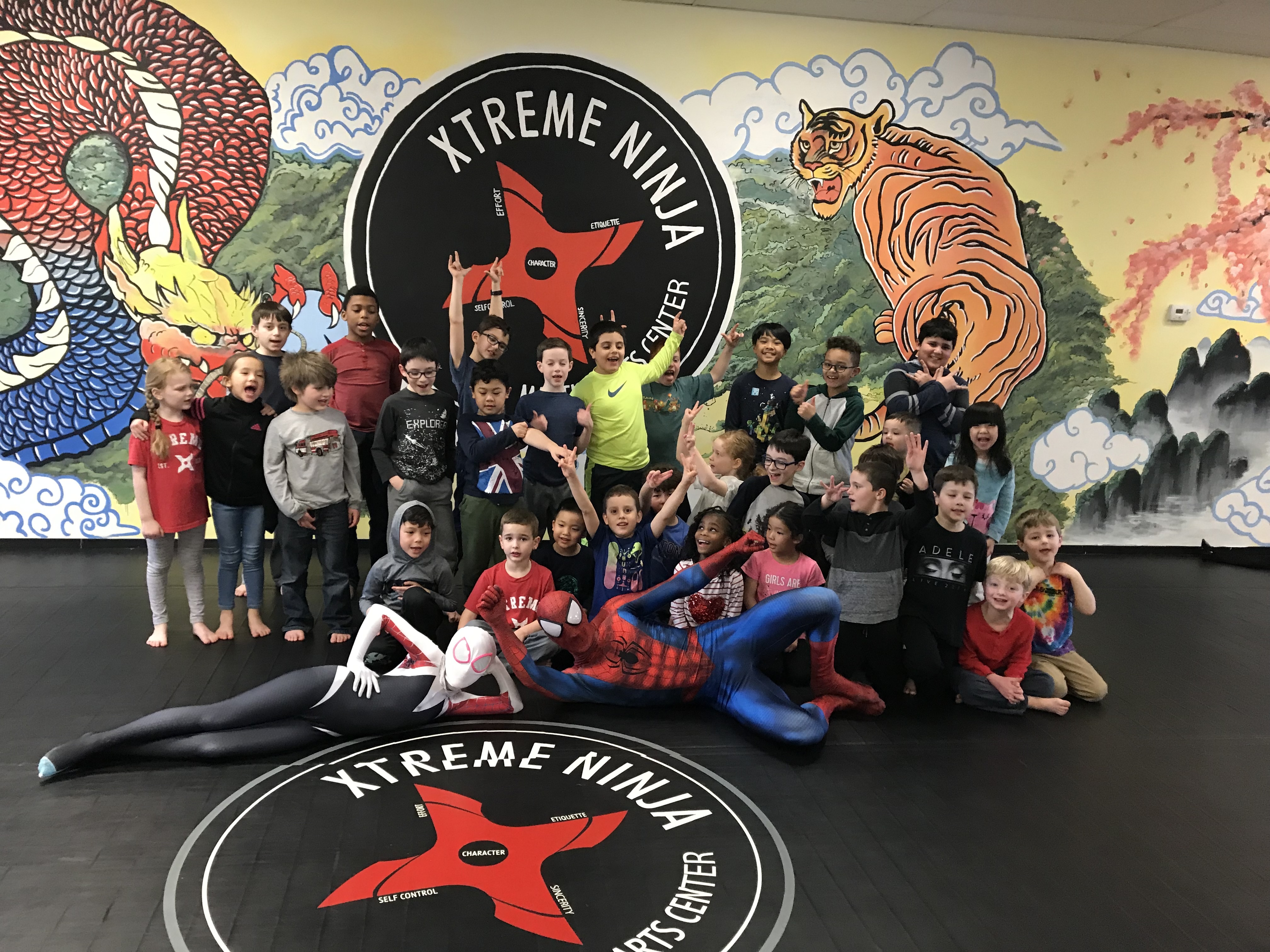Why Martial Arts Classes End with a Game (and Why It’s Backed by Brain Science)

If you’ve ever sat through a kids' martial arts class and thought:
"Why are they playing games instead of practicing more punches and kicks?" — You’re not alone.
And you’re not wrong to wonder. But here’s something many people don’t realize:
The games at the end of class aren’t a break from learning —
They are learning.
When intentionally designed, games become one of the most powerful tools in child development. They help strengthen the brain, support emotional growth, and build meaningful connections between kids, instructors, and peers.
Let’s break down the science behind why ending class with a game is more than just fun — it’s a game-changer for your child’s development.

1. Games Trigger Brain Chemistry for Learning
When kids laugh, connect, and feel safe during a game, their brains release a powerful cocktail of chemicals known as D.O.S.E.:
- Dopamine (for motivation & reward)
- Oxytocin (for connection & trust)
- Serotonin (for emotional balance)
- Endorphins (for joy & relaxation)
This feel-good mix supercharges the brain for learning and memory. A child who leaves class feeling happy and supported is far more likely to come back excited, focused, and ready to grow.
2. Games Reset the Nervous System
Here’s something crucial: kids can’t absorb new skills or information when they’re in “fight-or-flight” mode. That’s where games come in.
The end of class is the perfect time to regulate emotions, lower stress, and bring the nervous system back into balance. A fun and engaging game helps kids leave the mat feeling calm, empowered, and successful — not overwhelmed or frustrated.
3. Games Build Social & Emotional Skills
These games aren’t just about moving around — they’re about building relationships.
Through playful interaction, kids naturally practice important life skills like:
- Teamwork
- Patience
- Communication
- Conflict resolution
Waiting for a turn, navigating friendly competition, and showing respect to teammates — these moments lay the foundation for healthy emotional development and social confidence.
4. Games Boost Retention & Application
Neuroscience tells us: What’s fun, novel, and emotional is what sticks.
When kids end class with a positive emotional experience, they’re more likely to remember and apply the techniques and life lessons they learned earlier. Games help connect those new skills to joy, and that makes learning last.
5. Games Create Positive Associations with Learning
According to the Peak-End Rule in psychology, we tend to remember the final part of any experience most vividly.
By ending class on a high note — with laughter, fun, and connection — kids walk out the door feeling:
- Accomplished
- Supported
- Excited to come back
This is key for building long-term motivation and a lasting love of learning.
Not “Just a Game” — It’s Brain Training Disguised as Fun
Every game in class is age-specific, brain-based, and carefully aligned with child development milestones. Here's how a few favorites support cognitive growth:
“Go, Front, Back”
Helps young kids practice response inhibition — listening carefully, controlling impulses, and staying focused.
“Fishy Fishy”
Strengthens divided attention by requiring kids to dodge, decide, and move quickly while tracking others.
“Speed Ball”
Sharpens visual processing and attention control in a fast-paced team setting.
“Dr. Dodge Ball”
Builds focus and multitasking skills — and keeps older kids highly engaged.
Why It Works
The best learning doesn’t just happen through repetition — it happens through connection.
When a child ends class feeling seen, supported, and joyful, that’s not just a fun day — it’s powerful brain development. It’s confidence. It’s a community. And it’s the kind of experience that brings them back week after week, with a love for learning that lasts a lifetime.
Because in this environment, every game is a building block and every moment is a chance to grow.
Let the fun begin. The science will follow. 💙
👉 Want to see if martial arts is a good fit for your child? Reach out to Xtreme Ninja Martial Arts to learn more about our programs and schedule a trial class today.

